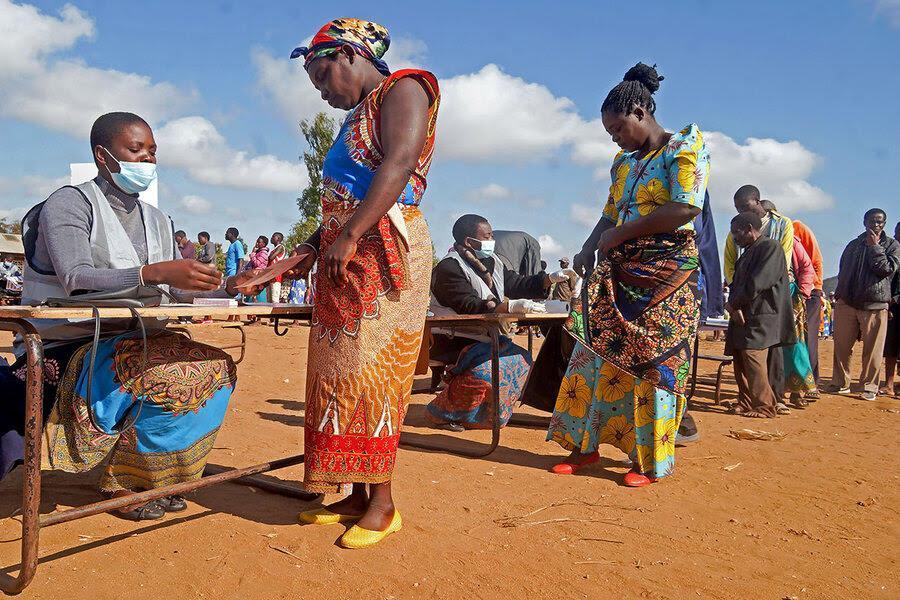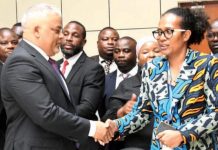Africa-Press – Malawi. As Malawi approaches its highly anticipated September 2025 presidential election, a familiar question resurfaces: Is regionalism still the key deciding factor in how Malawians vote?
Historically, Malawi’s political landscape has been heavily shaped by regional loyalties, with the country’s three main regions—Northern, Central, and Southern—often voting in blocs aligned with specific political parties.
The Southern Region, for instance, has traditionally been the stronghold of the Democratic Progressive Party (DPP), while the Central Region has long supported the Malawi Congress Party (MCP).
The Northern Region, although smaller in population, has often acted as a swing vote and has been associated with parties like the Alliance for Democracy (AFORD) and later the United Transformation Movement (UTM).
This trend of regional voting patterns dates back to the early days of multiparty democracy in 1994, when Dr. Bakili Muluzi secured a majority largely through Southern Region support.
In subsequent elections, regionalism remained a potent force, as voters largely cast their ballots based on ethnic, tribal, or regional affiliations rather than policy platforms or performance.
However, the 2020 presidential election rerun signalled a possible shift.
The formation of the Tonse Alliance—a coalition of nine parties, including the MCP and UTM—managed to secure cross-regional support, winning over 58% of the national vote and breaking some of the traditional regional voting patterns.
Many Malawians viewed this outcome as a hopeful sign that the electorate was moving toward issue-based voting, focusing more on national unity, governance, and development agendas than on regional identity.
Despite this progress, evidence suggests that regionalism still lingers beneath the surface of Malawi’s electoral behaviour.
A 2022 Afrobarometer survey found that while more Malawians now prioritise economic issues, corruption, and public service delivery when choosing leaders, regional and ethnic loyalty remains a significant influence, especially in rural areas.
In many districts, political campaign strategies continue to rely on local power brokers, tribal affiliations, and language-based appeals to rally support.
Political parties also tend to select running mates based on regional calculations to balance the ticket and maximise votes across all regions.
This practice confirms that political actors themselves still believe regional identity plays a critical role in shaping voter behaviour.
For example, in the run-up to the 2025 elections, major presidential aspirants are already being assessed not only on their competence but also on where they come from and who their running mates will be.
The political discourse in many parts of the country is still dominated by questions like, “Is he one of us?” rather than “What is his plan for the country?”
However, a new generation of voters—especially the youth and urban middle class—appears to be more inclined toward issue-based politics.
Young voters, who make up over 50% of Malawi’s population, are increasingly vocal about unemployment, poor healthcare, underfunded education, and corruption.
These concerns transcend regional lines and are pushing some voters to evaluate candidates based on their track records and vision rather than their place of birth.
Moreover, social media and independent media outlets have helped break the monopoly of region-based narratives, exposing voters to national debates and diverse political perspectives.
Online platforms such as Twitter, Facebook, and TikTok are shaping political opinions, particularly among the urban youth who are less influenced by traditional regional affiliations.
Civil society and think tanks have also contributed to the evolution of Malawi’s political consciousness.
Organisations like the Public Affairs Committee (PAC) and National Initiative for Civic Education (NICE) have conducted civic education campaigns aimed at encouraging issue-based voting.
Despite these efforts, political violence and hate speech—often grounded in regional or ethnic tensions—occasionally resurface during campaign seasons, proving that Malawi has not yet fully shaken off the ghosts of regionalism.
To overcome this, political parties must actively promote national unity not only through rhetoric but by building truly inclusive agendas that address the concerns of all regions equitably.
Malawi’s democracy stands to mature only if voters continue to move away from the divisive politics of origin and towards evaluating leaders based on competence, vision, and accountability.
In conclusion, while regionalism remains a stubborn undercurrent in Malawi’s elections, there are clear signs of a gradual shift toward issue-based voting, particularly among the youth and urban electorate.
Whether this shift is strong enough to redefine the outcome of the 2025 election remains to be seen.
But one thing is certain: the future of Malawian democracy depends on breaking the cycle of regional identity politics and embracing leadership that speaks to national unity and progress.
For More News And Analysis About Malawi Follow Africa-Press






